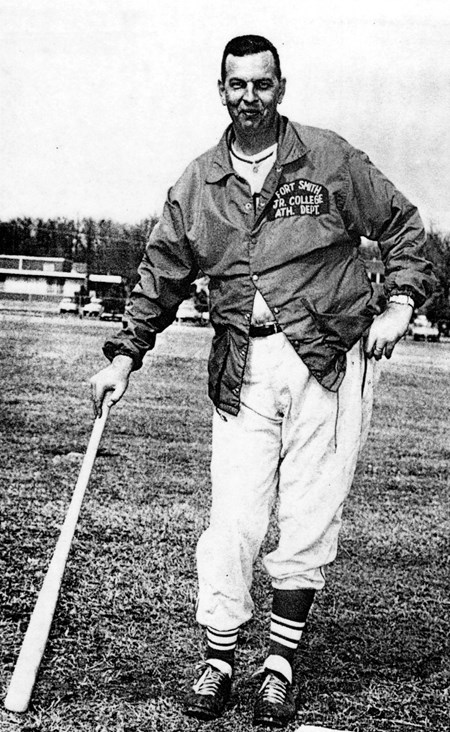
Famed Baseball Coach Bill Crowder Honored
Written By: UAFS Athletics
The University of Arkansas – Fort Smith mourned the loss of Hall of Fame baseball coach Bill Crowder, who passed away earlier this week, sharing stories of his 1,000 win career, his dedication to his players, and his legacy as a man with the heart of a Lion.
Crowder began his coaching duties at UAFS – then known as Westark Junior College – in 1965 when he accepted a position to coach both basketball and baseball. He coached both sports for three years before focusing solely on baseball for the final 30 years of his career.
Over the next three decades, Crowder racked up a career record of 1,003-559 as he turned the Lions into perennial title contenders for the Bi-State Conference and Region II. Upon the time of his retirement, Crowder was on of the top-five all-time winningest coaches in NJCAA history.
Crowder coached more than 500 players who went on to play at four-year programs and had more than 30 players sign professional contracts. He coached four of the five UA Fort Smith players who went on to play in the Major Leagues – Jeff McKnight, Aaron Looper, Kevin Lomon and Ryan Nye.
In 2001, Crowder was inducted into the NJCAA Hall of Fame and the UAFS Hall of Fame in 2010. The baseball facility on campus was named Crowder Field upon completion in 1994 in honor of the legendary coach.
Accolades were never at the front of Crowder's mind, as he was focused on serving others and molding leaders of those he taught and coached. He published a memoir in 1992 titled "Success is More Than Wins."
"His family, faith, players and friends meant everything to him," former player and assistant coach with Crowder Jim Wiley said. "All he wanted from his players was to give their best effort, go to class to get their degrees and become good stewards of their community."
Crowder also recruited the first African-American athlete to play for Westark when Greg Davis committed to the Lions basketball program in 1966. Crowder later recruited Davis' brother, Fred, a few years later. Crowder recalled of the Davis brothers, "both young men were outstanding people, and both today are very successful."
"He was just a wonderful, wonderful man. There's really nothing else you can say," Wiley concluded. "Coach lived and died Westark blue. It meant the world to him."
Funeral arrangements are pending.
